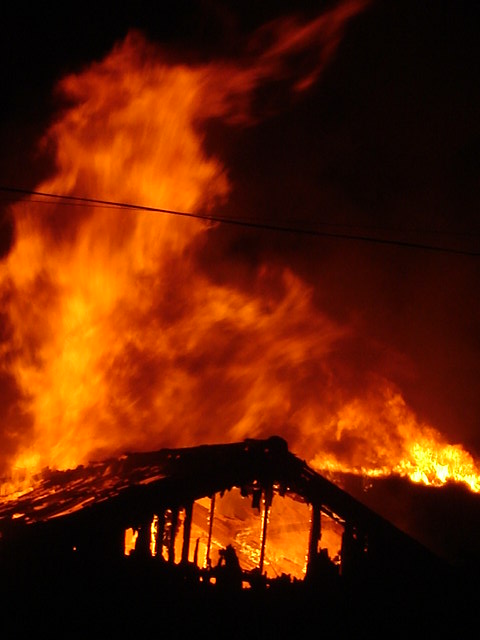
Charges for Arson in Ohio
Chapter 2909 of the Ohio Revised Code makes it a crime for any person to use fire or explosions to “knowingly … cause, or create a substantial risk of, physical harm” to a building, person, piece of property, or vehicle. An alleged arson offense could also be treated as vandalism or terrorism, and, depending on the target and the amount of injury or damage inflicted, the purported criminal act can be prosecuted as a high-level misdemeanor or a felony. Jail and stiff fines are always possible, making hiring a Columbus, Ohio, criminal defense attorney a must when charged with arson.
Understand the Basics of Arson as a Crime
It is illegal both to purposely set a fire or cause an explosion or to hire someone else to do so. A person suspected of doing either will be charged even if no one got hurt and the damage to an unoccupied building or empty field was minimal.
When police and prosecutors consider an alleged act of arson to be minor, they will file a charge for a first-degree misdemeanor offense. The maximum penalties would then be 180 days in jail and a fine of $1,000.
Arson becomes a felony offense if someone suffers injuries or when repairing the property damages costs more than $1,000. The following table illustrates how potential penalties escalate as the alleged offense is considered more serious:
|
Alleged Intent and/or Result |
Charge |
Maximum Penalties |
|
More than $1,000 in damage |
Fourth-degree felony |
6-18 months in jail; $5,000 fine |
|
Insurance fraud |
Fourth-degree felony |
6-18 months in jail; $5,000 fine |
|
Targeting a government building or school |
Fourth-degree felony |
6-18 months in jail; $5,000 fine |
|
Targeting parks, woods, or farm fields |
Fourth-degree felony |
6-18 months in jail; $5,000 fine |
|
Arson for hire |
Third-degree felony |
12-60 months in jail; $10,000 fine |
|
Arson for hire in order to injure or kill a person |
Second-degree felony |
2-8 years in prison; $15,000 fine |
|
Arson that injures or kills an emergency responder (e.g., firefighter, EMT, police officer) |
First-degree felony |
3-11 years in prison; $20,000 fine |
Ohio Maintains an Arsonist Registry
In addition to serving prison time and paying criminal fines, individuals convicted of arson in Ohio must register their name and address with their county’s sheriff’s office. The requirement is similar to the one placed on sex offenders, but having one’s information removed from the arson registry may be slightly easier. A sentencing judge has the discretion to limit an arsonist’s registration obligation to 10 years. During the registration period, however, failing to keep law enforcement updated on one’s whereabouts can result in an arrest for violating terms of release and a new jail sentence.
Recognize the Seriousness of Charges Related to Arson
Ohio’s arson statute prohibits the possession of materials that can be used to commit arson when authorities believe the reason someone has the fuels, incendiary devices, or explosive chemicals is to cause damage or injuries. The law also states that it is illegal to possess chemicals, biological agents, and radiological substances that can be converted into weapons. Using any of the materials listed in the statute to destroy telecommunications equipment, stop traffic, or harm large groups of people can be prosecuted as terrorism.
Vandalism is also addressed in the arson statute. Prosecuted as a fifth-degree felony punishable by up to 12 months in jail and $2,500 in fines, a vandalism charge can be made when more than $1,000 in damage is inflicted on a building or piece of property by any means. Spray painting a wall can bring a vandalism charge, as can knocking over headstones in a cemetery or breaking out windows.
Defenses Against Arson Charges Exist
Mounting a successful defense against an arson charge in Ohio involves questioning the evidence the prosecution presents to establish identity, intent, and harm. Questions an experienced Columbus criminal defense lawyer will demand conclusive answers to include
- Did anyone, in fact, set the fire or deliberately cause the explosion?
- Did police arrest and charge the person who is actually responsible for the fire or explosion?
- Did the person charged with arson mean to destroy or damage a building or to injure someone?
- Are reports of damages and injuries accurate in terms of dollar amounts and the need for medical treatments?
Forensic evidence that a fire or explosion occurred for any reason other than natural or accidental causes is difficult to find and interpret. Relying on a defense attorney who can bring in fire science and explosives experts to challenges a prosecutor’s assertions in court can make all the difference between a conviction and an acquittal.
If you need help with an arson case, contact The Maher Law Firm in Columbus online or by calling (614) 205-2208.
RECENT POSTS
-
What is Improperly Handling Firearms in a Motor Vehicle in Ohio?
07 Mar 2025
-
What is the Difference Between OVI and DUI in Ohio?
05 Mar 2025
-
What Happens When You File a Police Report on Someone For Harassment
11 Dec 2024
-
How to Move for Dismissal for OVI in Ohio
28 Oct 2024
-
Ohio Fraud Laws: Fraud Charges and Their Penalties in Ohio
12 Sep 2024
-
Can Dismissed OVI Be Expunged in Ohio?
02 Sep 2024
BLOG CATEGORIES
-
Traffic
126 Posts
-
Weapons
3 Posts
-
Drugs
22 Posts
-
DUI
195 Posts
-
Current Events
1 Posts
-
Expungements
2 Posts
-
News
18 Posts
-
Criminal Defense
45 Posts


